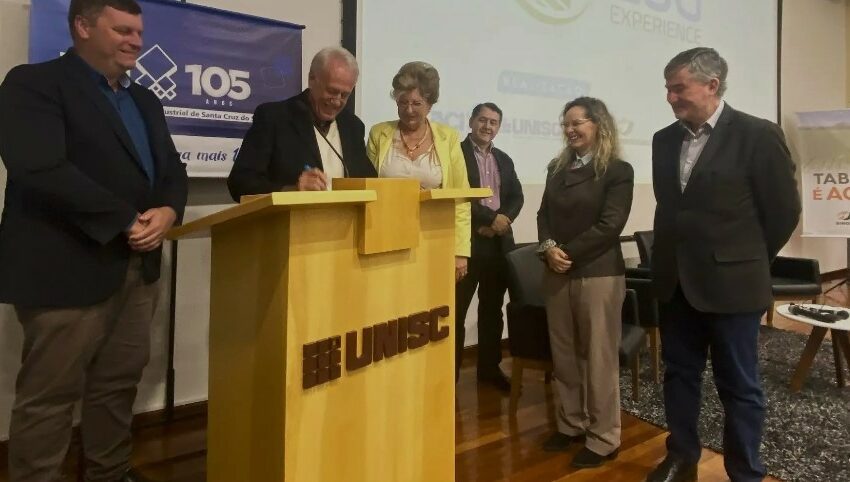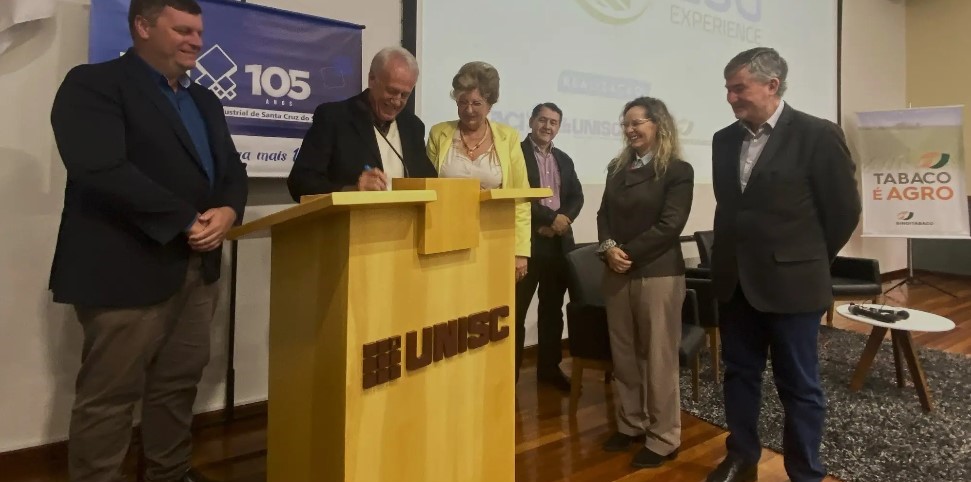Sinditabaco Attends ESG Experience
- Featured News This Week Sustainability
- October 4, 2023
- 0
- 3 minutes read

Image: SindiTabaco

Ricardo Voltolini, CEO and founder of the consultancy Ideia Sustentavel, gave the opening lecture of the first edition of ESG Experience on Oct. 3 at the University of Santa Cruz do Sul (UNISC) Memorial Auditorium in Santa Cruz do Sul, according to SindiTabaco. Promoted by ACI, the event was attended by several business leaders from the region.
Voltolini portrayed the challenges and trends of sustainability and environmental, social and governance (ESG). “Today it is a trendy topic, but it has existed for many years. It has been called private social investment, corporate social responsibility, sustainability—in two versions—and, more recently, ESG, a concept that was born in 2004, but only in 2019 did companies bring up the discussion that it is necessary to put purpose ahead profit,” he said.
According to him, there has never been so much talk about sustainability because there have never been so many pressure factors, especially climate change, and the new generations that are beginning to take power. “Millennials already come with a pro-sustainability generational chip. This new way of seeing the business can accelerate changes,” he highlighted.
In the afternoon, ESG cases focused on the environmental area were discussed with the participation of representatives from the three largest cigarette companies installed in Brazil (Philip Morris, BAT and Japan Tobacco International), CORSAN and Azul Conecta. Sustainability and innovation for a smoke-free future; advances in the protection of biodiversity; sustainable agriculture for small properties; payment program for environmental services and innovation focused on sustainability were the topics discussed by the panelists.
Iro Schuenke, president of the Interstate Tobacco Industry Union (SindiTabaco), participated in the moment focused on governance cases, together with three other panelists: Jorge Hoelzel Neto, management facilitator and president of the Mercur advisory board; Luiz Motta, CEO at Excelsior Alimentos; and Fabiola Eggers, institutional relations manager at Fruki.
In his presentation, Schuenke detailed the tobacco sector’s initiatives within the scope of ESG and highlighted the importance of the Integrated Tobacco Production System to achieve effective results in the different pillars of ESG: environmental, social and governance. “Our integration model is a competitive differentiator that unites the links in the production chain with the purpose of delivering a product of quality and integrity, but more than that, together, these links activate good ESG practices, often in an innovative way and pioneering,” he said.
During the event, the Pact for Regional Environmental Valorization was signed between the Vale do Rio Pardo Intermunicipal Services Consortium (Cisvale), the Santa Cruz do Sul Commercial and Industrial Association (ACI), the Brazilian Tobacco Growers Association (Afubra) and SindiTabaco. The signing was accompanied by the mayor of Santa Cruz do Sul, Helena Hermany, and the vice rector of UNISC, Andreia Valim. The pact aims to identify and develop socio-environmental actions, taking into account the principles highlighted by the region and integrating public authorities, associations, entities, communities, companies and public control bodies to promote the integration of environmental actions and consolidate long-lasting short term, medium term and long term. The following principles guide collective actions: commitment to environmental sustainability; biodiversity conservation; climate change and resilience; sustainable resource use; environmental education and public engagement; partnerships and collaboration; monitoring and evaluation; transparency and accountability; innovation and problem-solving; and heritage for future generations.
